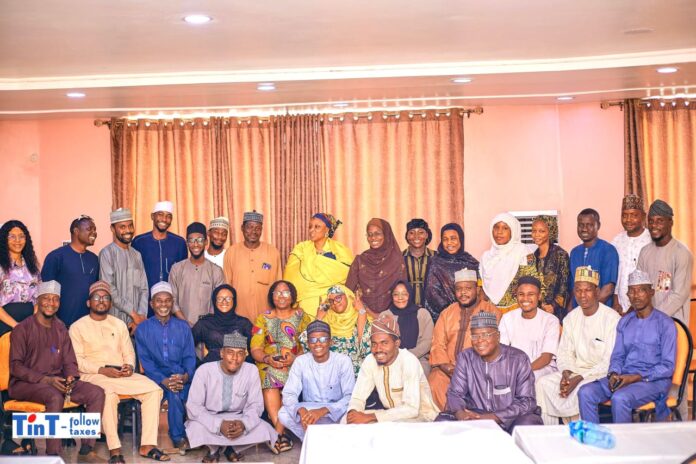By Rabiu Sanusi
The Kano Tax Justice and Governance Platform (TJ&GP), in collaboration with Transparency and Accountability in Totality, hosted a two-days stakeholders’ policy dialogue in Kano aimed at addressing challenges impeding Kano State’s tax harmonization and enhancing Internally Generated Revenue (IGR).
The Progamme which Supported by Christian Aid (CAID) and the International Budget Partnership (IBP), the dialogue, titled “Strengthening the Effective Implementation of the Harmonization Law and Validating the Gender Perspective Analysis of the Internal Sector – Tax Policy and Administration in Kano State,” brought together both state and non-state actors.
Speaking to Journalists Mr Sadiq Muhammad Mustapha who was the programme Lead highlighted that Kano state declining IGR, citing National Bureau of Statistics data showing that Kano no longer ranks among Nigeria’s top 10 revenue-generating states despite being a northern commercial hub.
He attributed this decline to bureaucratic and harmonization challenges across tax boards, calling for streamlined efforts to boost collection efficiency.
Mr Sadiq added that the research showing that women in Kano, particularly those in low-income businesses, bear a disproportionate tax burden under the presumptive tax regime, which applies similar tax rates regardless of income levels.
“We aim to develop a gender-sensitive framework that aligns tax obligations with actual income levels to avoid overburdening women-owned businesses.”
In her Adress Mrs Chika Okoh from the IBP emphasized that although tax policies are generally neutral, they can disproportionately impact marginalized groups, including women and persons with disabilities.
Mrs Okoh recommended establishing a central billing system to curb revenue leaks and to consider the specific needs of these groups in tax policy to promote fairness and inclusivity.
In his part Abdulmumi Ladan Ajumawa, Director of Development Support Coordination at Kano’s Ministry of Planning & Budget, noted that the Ministry is committed to updating tax policies to ensure gender inclusion.
Among the participant Malam Yakubu Yar Gaya from the Kano Internal Revenue Service (KIRS) highlighted KIRS’ ongoing efforts to promote tax compliance and awareness among women, stressing the benefits of taxes for community development.
Our Reporter reports that the dialogue included two plenary sessions that examined Kano’s Consolidation and Codification Law, which mandates unified tax collection but has faced challenges in implementation.
Discussions focused on reducing tax multiplicity and ensuring equity across sectors to strengthen Kano’s IGR.




